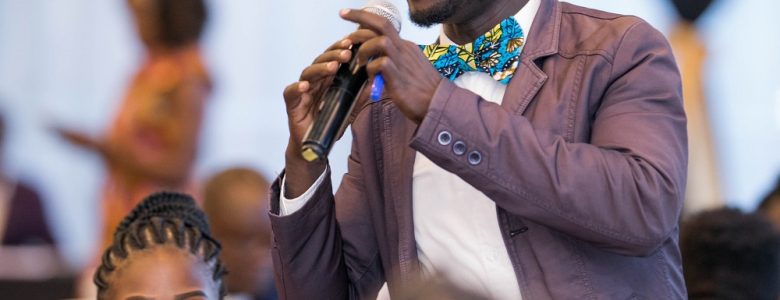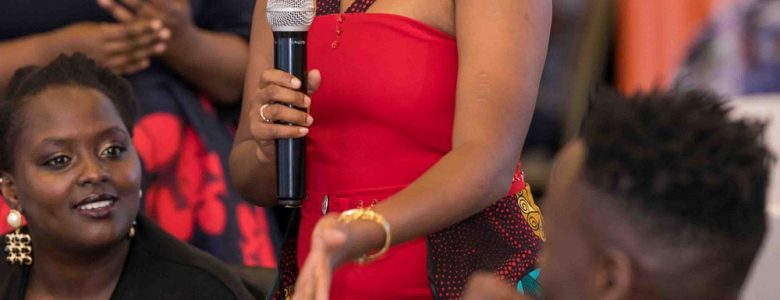SIP Delivery Coupled with Systemic Thinking Enhanced Our Community Service
SAYDS MEDIA
November 16, 2022
SAYDS MEDIA,SIP,Systemic Thinking

Systems thinking is the best diagnostic tool. It has allowed me to ask better questions before jumping to conclusions.
I am Robert Odera, a Kenyan citizen born in Kisumu and currently residing in Makadara, Nairobi. I am a self-motivated team player and a passionate teacher. Growing up, I experienced many positive and negative life challenges, education and job-wise. I have, for many years, witnessed other communities of young people going through the same challenges. This has always motivated my desire to be part of providing solutions in my community.
I learned about SAYDS Organization through a friend (SAYDS representative) who briefly described who they are and what they do to ensure youth are equipped with new skills in system thinking to solve complex problems through their fellowship program. As such, I was moved to apply for the SAYDs fellowship program.
The fellowship program took me through intense training, where I was able to open my mind to think differently about some of the problems ailing the Makadara community using the knowledge gained from the nine months training program.

Experience before and after joining the SAYDS program
I met SAYDS when I was still grappling with ideas on how to create change. The organization has been an eye-opener. Since the training entails systems thinking, it has allowed me to make informed choices in life and community development.
It is also valuable for telling compelling stories about how a system works. Prior to the fellowship, I lacked confidence and skills, especially in solution exploration and development. Through the SAYDS program, I have managed to develop extensive skills that has helped me in daily [ursuits.
The three transformative toolkits have been effective vehicles that have helped me to identify, describe and communicate how a system works. They include:
- Complexity Analysis Toolkits
- Systems Intervention Toolkits
- Complexity and Public Policy guide
Today I can interrogate a problem into the constituent parts and interconnections that give it life using the knowledge gained. I can apply systems thinking in my academic life in research based projects and assignments, in my personal daily life for personal planning, and in service to others. . I am equipped to teach people around me about systems thinking by understanding how different parts of a system interrelate and how systems work within the context of other, more extensive systems. This has also enabled me to gather insights from the community about a given social problem.
Systems thinking is one of the best diagnostic tools for examining challenges that exist within complicated spaces. It has allowed me to ask better questions before jumping to conclusions; because I have learned that most problems involve stakeholders, who may have different opinions about the problem and what to do about it.
Impact/personal reflection of the experience and how it has helped impact the community (Delivering SIPS and mobilization workshop)
I have always been passionate about education outcomes. Seeing youth, who are full of skills, being availed opportunities that coincide with building positivity and wellbeing of the community they love is all I’ve always yearned for. SAYD’s Systemic Insights For Policy (SIP) document, in its capacity, aims at systematically addressing social issues. Its background is mainly on devolution. This document is enriched with systemic approaches gathered from CAT, SIT, and Community Forums.
The document addresses different stakeholders and has had a binding effect because most of this community of stakeholders received the documents and wanted to get enlightened more on systems thinking and how it works. Since systems thinking means different things to different people, workshop we carried out equipped the attendanst wth the necessary skills to oragnize themselves to initiate development. Reaching out to the community has helped to build good character, respect, and responsibility among youth.
The mobilization has also helped us form a solid learning base through training on systems thinking and SIP build-up. People we have interacted with can now understand how interconnected problems are and provide insights that can help develop the right interventions.
On a personal note, some of the areas the training benefited me include:
- Learning the three transformative toolkits successfully and applied them effectively.
- Creating a compelling vision of the future for these communities
- Understanding the complex human factors and challenges associated with change.
In conclusion, we that SAYDS for its support in ensuring that we carried our activities efficiently with a goal of impacting our communities.
Recent Post
How delivering Systemic Insights For Policy and doing mobilization workshops Impacted our work in the community
November 16, 2022
Why listening to community members can lead to systems changeNovember 16, 2022
Tumaini Team SIP Delivery to Nairobi County GovernmentVolunteer
You will be placed in the appropriate team or project depending on your skills and experience. Please reach out if you can assist us in any of the following fields:








